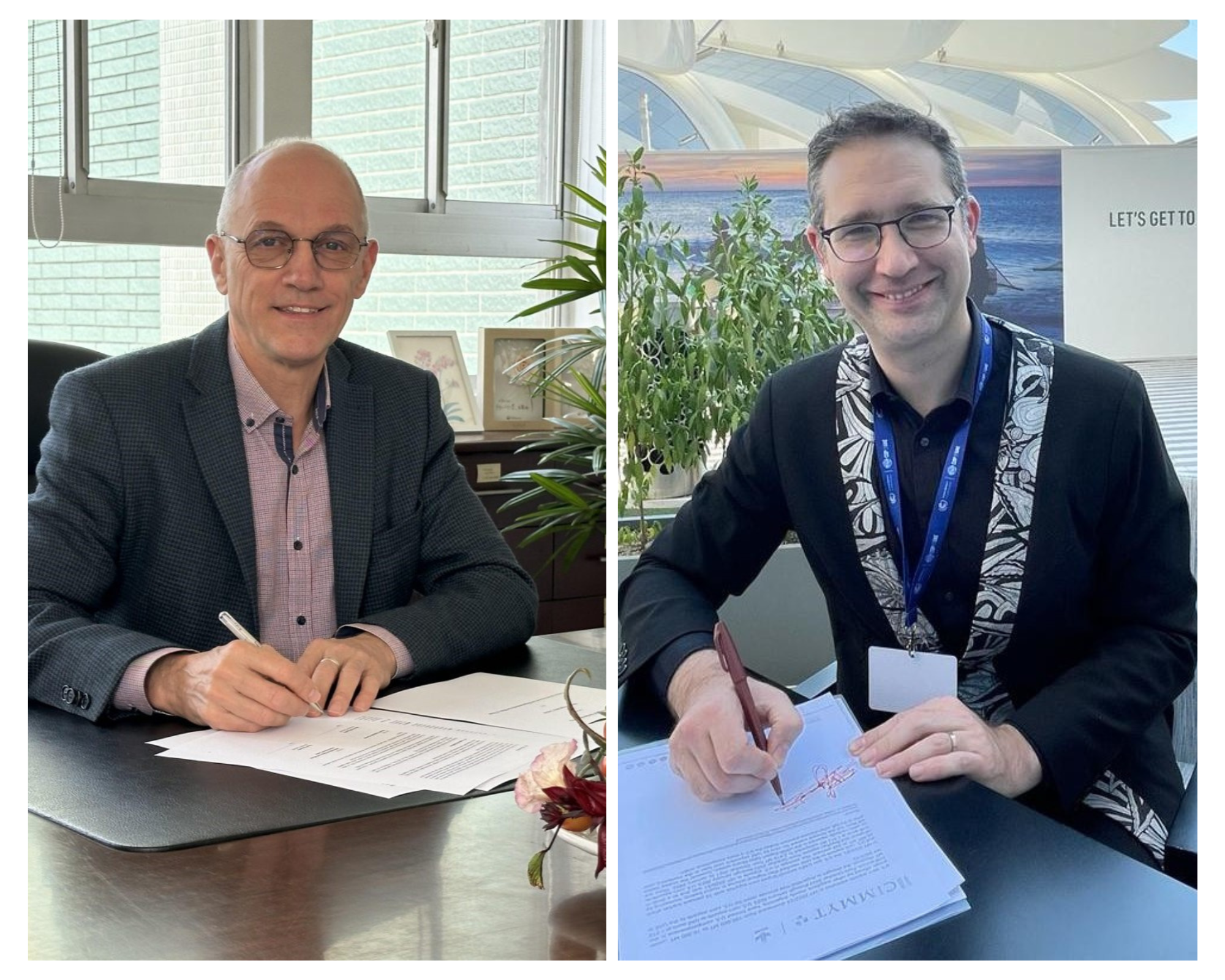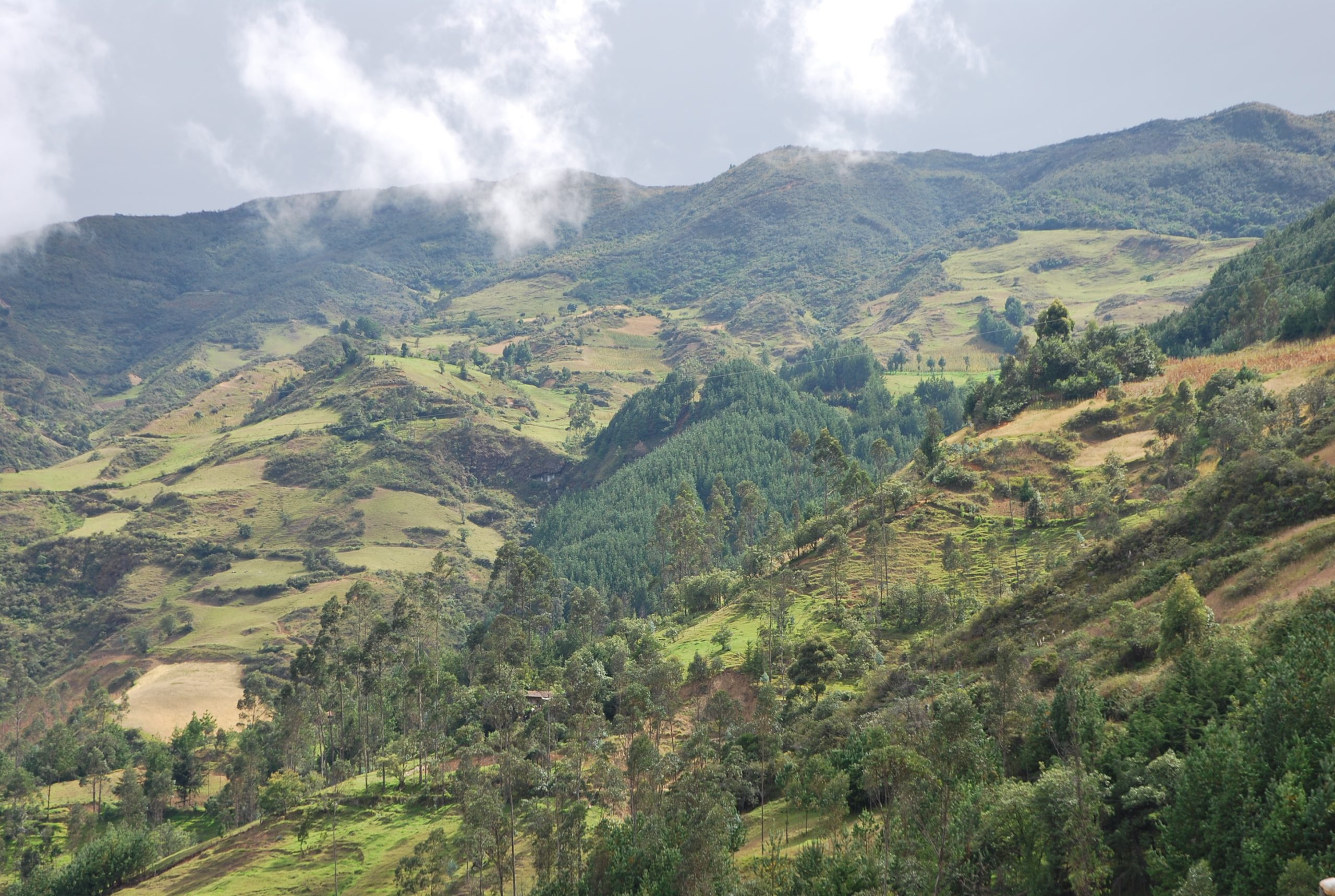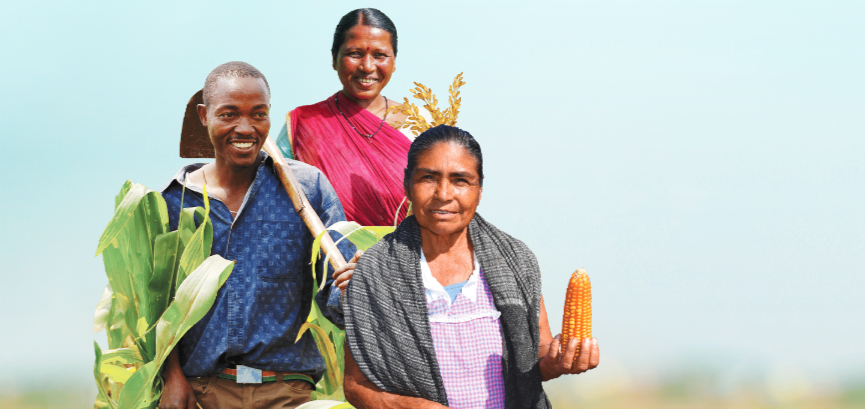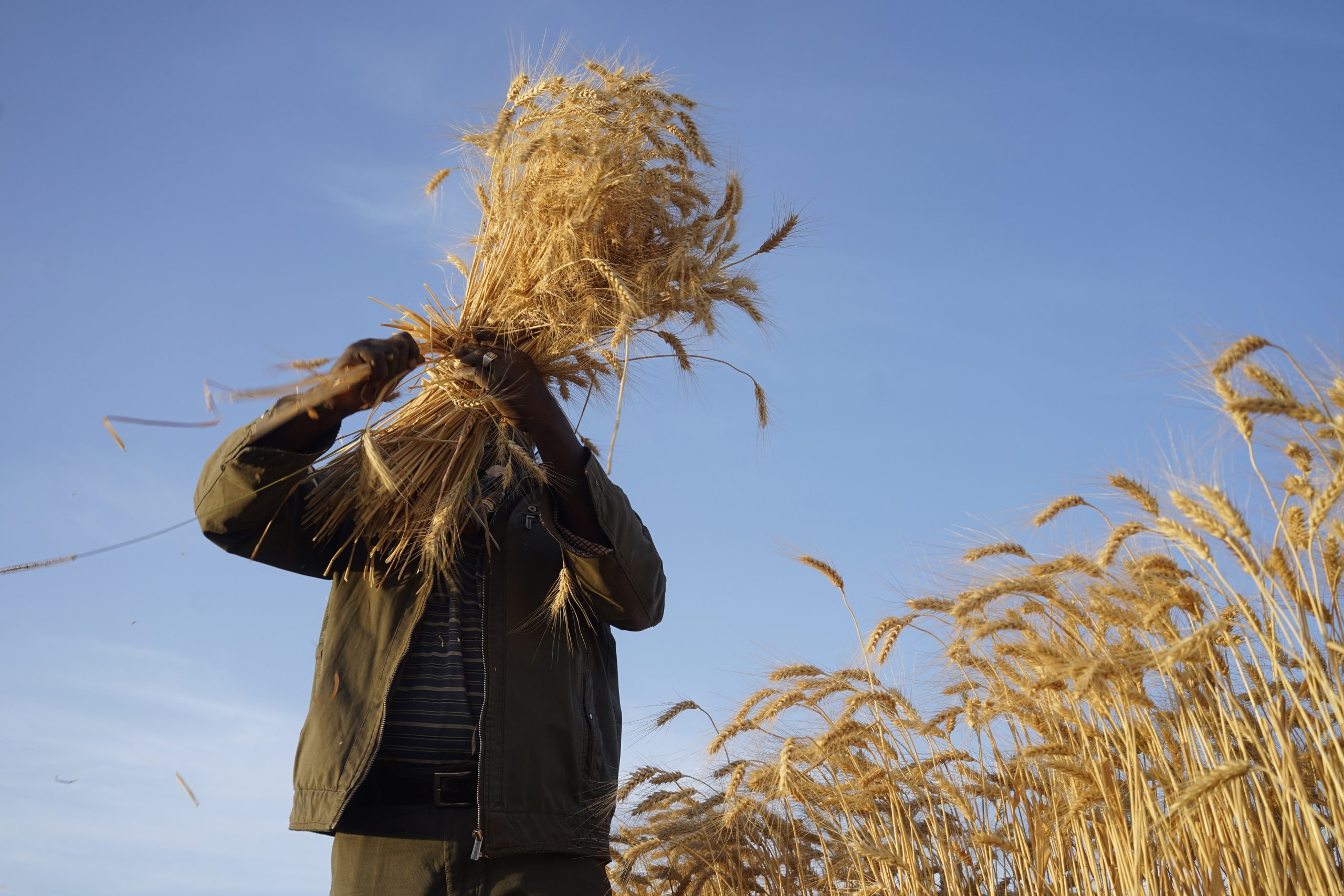On December 9, 2023, CIMMYT and the World Vegetable Center (WorldVeg) signed a memorandum of understanding (MoU) to further promote research and development, capacity strengthening activities and facilitate joint learning and the exchange of information and technology between the two organizations.
Sustainable diversification of food systems, good agricultural practices and safe and sustainable development of cereal and vegetable production systems and agrifood value chains sits at the core of this partnership.
The ultimate objective of the MoU is to further contribute to the achievement of the Sustainable Development Goals (SDGs), in particular SDG1 and SDG2, enhancing food and nutrition security, reducing rural and urban poverty and increasing employment opportunities in particular for women and youth.
CIMMYT and the World Vegetable Center are already partners in the Southern Africa Accelerated Innovation Delivery Initiative Rapid Delivery Hub (AID-I). Through this program, it is distributing seed kits directly to vulnerable populations such as pregnant and lactating mothers and children under five, as well as improving soil health, promoting the production of traditional African vegetables, and increasing employment opportunities through building vegetable businesses. Recent impacts in Zanzibar are a good example.

“This collaboration between CIMMYT and WorldVeg is a testament to the potential of collective action, highlighting sustainable solutions and community empowerment as essential elements in combating malnutrition and enhancing overall well-being. We are building on the foundation already established by our collaborations within the Accelerated Innovation Delivery (AID-I) project in southern and eastern Africa,” said CIMMYT Director General, Bram Govaerts. “CIMMYT is excited to expand our connection with WorldVeg to bring innovations to even more people as crop diversification encourages improved nutrition.”
“The World Vegetable Center is proud to deepen our work with CIMMYT. Reaching the Sustainable Development Goals will require not only advanced technologies but also systems to deliver those innovations to the people that need them most and this partnership will enable both priorities,” said Director General of the World Vegetable Center, Marco Wopereis. “Promoting and enhancing the availability of nutritious vegetables and cereals are vital to achieving these aims.”
By providing farmers with more options, CIMMYT and WorldVeg will promote the cultivation of diverse crops that are essential for a balanced and nutritious diet particularly among vulnerable communities around the world. By raising awareness about the significant benefits of incorporating different vegetables and cereals into daily diets, the partnership will inspire and encourage millions of people to fully embrace diversification and improved nutrition.
About CIMMYT
CIMMYT is a cutting edge, non-profit, international organization dedicated to solving tomorrow’s problems today. It is entrusted with fostering improved quantity, quality, and dependability of production systems and basic cereals such as maize, wheat, triticale, sorghum, millets, and associated crops through applied agricultural science, particularly in the Global South, through building strong partnerships. This combination enhances the livelihood trajectories and resilience of millions of resource-poor farmers, while working towards a more productive, inclusive, and resilient agrifood system within planetary boundaries.
CIMMYT is a core CGIAR Research Center, a global research partnership for a food-secure future, dedicated to reducing poverty, enhancing food and nutrition security and improving natural resources. For more information, visit cimmyt.org.
About the World Vegetable Center
The World Vegetable Center (WorldVeg) is an international non-profit institute for vegetable research and development. It mobilizes resources from the public and private sectors to realize the potential of vegetables for healthier lives and more resilient livelihoods.
WorldVeg’s globally important genebank, improved varieties, production and postharvest methods help farmers to increase their vegetable harvests, raise incomes in poor rural and urban households, create jobs, and provide healthier, more nutritious diets for families and communities. With headquarters in Taiwan, field operations are led from regional centers in Benin, India, Mali, Tanzania and Thailand, and through offices in other key countries.

 Climate adaptation and mitigation
Climate adaptation and mitigation 
